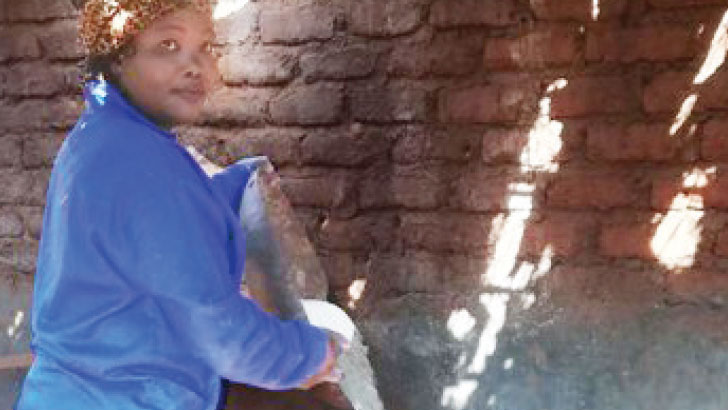Youths find gold in agriculture
When growing up, Mercy Chimkunda Phiri, 30, wanted to become a journalist. The fame and adventure of travelling to places and meeting people of all manner appealed to her.
Sadly, her dream was shattered before even taking the first step into this noble journey.
“I failed to qualify for enrollment for a certificate course at Malawi Institute of Journalism in 2018,” says Phiri.
It is this rejection that pushed her to find an alternative path, something to keep her busy and bring food on the table. She settled for pig farming.
Like most youths who regard farming as something temporary while waiting for employment, Phiri also took the same approach at first.

With a capital investment of K40 000, she bought two piglets for a start. But lack of knowledge and skills in entrepreneurship hampered the growth of her venture.
“I had little knowledge of how I could grow the business and ended up in a hand-to-mouth situation,” says Phiri, who is based in Lumbadzi in Dowa District.
When Jobs for the Youth (J4Y) Programme being implemented by the Ministry of Youth and Sports called for applications from young people interested to learn entrepreneurial skills in agriculture, information and communication technology (ICT) and manufacturing, she did not hesitate to apply.
Phiri’s application was successful.
She consequently went through the programme at Mikolongwe College of Agriculture J4Y Incubation Centre in Chiradzulu.
“The training empowered me with relevant skills in entrepreneurship with regard to my business and that marked the start of my success,” says the mother of one.
The six-month training improved her animal husbandry, business and marketing skills. She now takes better care of her pigs, accounts for her business and also finds better markets.
For Phiri, pig farming is no longer a temporary economic activity. Her routine activities revolve around this business.
She now owns 64 pigs and when she goes to a market, a pig fetches an average price of K80 000.
“Now, I can take care of my needs and those of my daughter, including paying for her school fees,” says Phiri, adding that she no longer desires to be employed as she is an employer herself with one permanent worker who takes care of the pigs.
She also runs a piglet pass-on programme as one way of empowering widowed women and the youth.
“I am proud of transforming lives for vulnerable populations by inspiring them with my success in livestock farming,” Phiri says.
She is grateful to J4Y Programme for propelling her business to success.
The Ministry of Youth and Sports runs the J4Y Programme, whose aim is to reduce youth unemployment which currently stands at 23 percent, with financial support from the African Development Bank (AfDB).
Lameck Matiki, 23, is another programme participant who engaged in agriculture to finance his education at Lilongwe University of Agriculture and Natural Resources (Luanar).
“My parents could not support me financially through college. So, I rented a piece of land where I grew vegetables to finance my education,” he says.
When Matiki graduated in 2018 with a bachelor’s degree in horticulture, he struggled to find a job and resorted to continue with his business.
While Phiri got her J4Y training at Mikolongwe College of Agriculture, Matiki obtained his training at Thanthwe Farm Enterprises in Lilongwe which is also one of the host incubators of the programme.
The knowledge he acquired enabled him to register a business under the name Smart Sprouts, which is operating in Traditional Authority Kalolo in Lilongwe.
“I am now able to secure markets for my produce at supermarkets and restaurants. I have also expanded my business into growing bananas, pineapples and various vegetables,” says Matiki, who also boasts of having employed one permanent worker and nine temporary labourers.
Thanthwe Farm managing director Ngabaghila Chatata says her farm has so far hosted 212 incubates, 30 percent of whom are now “well-established” in agribusiness.
“Most incubates have embraced the concept of self-employment through agribusiness and it is encouraging to see many youths motivated to take this route,” she says.
Chatata believes that J4Y Programme will help increase the success rate of youth enterprises.
J4Y, which started in August 2017, is expected to create 17 000 jobs and 6 000 youth-owned enterprises in Malawi by the end of its six-year term in 2022.
Government is pleased with the programme’s progress in youth empowerment through capacity building in various economic activities.
“Looking at the number of youths who have already benefited from the programme, we can say it is meeting its goal of empowering young people with entrepreneurial skills,” says Principal Secretary in the Ministry of Youth, Oliver Kumbambe.





